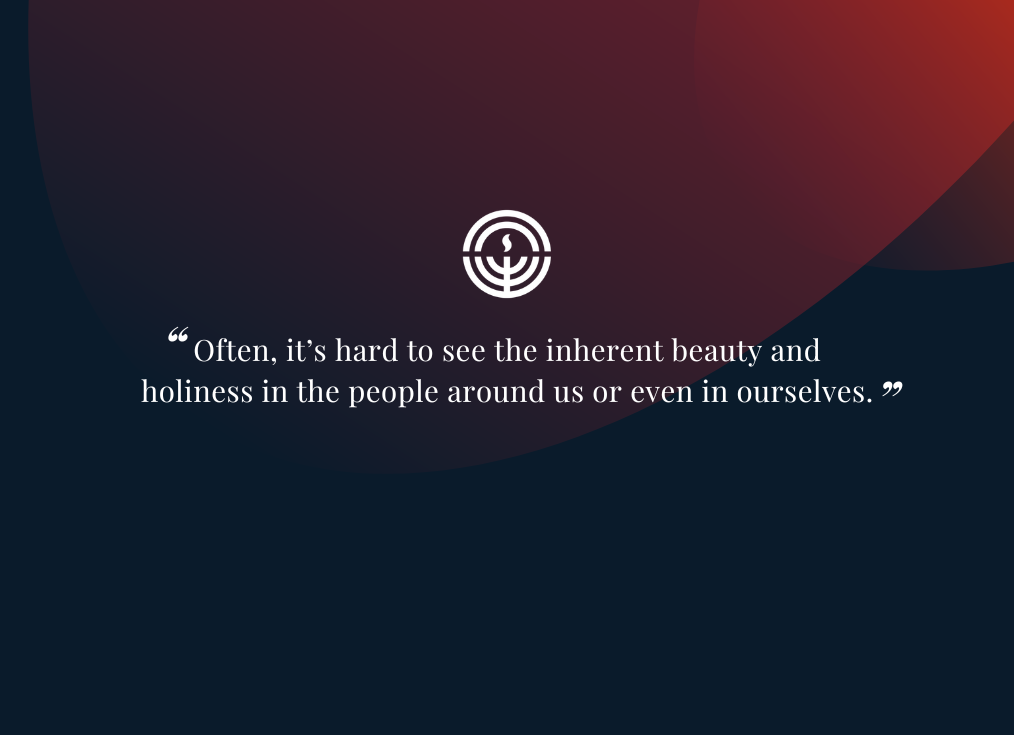When the Sea Sees: The Hidden Holiness Within

Dear Friends,
The main focus of this week’s Torah portion, B’Shalach, is the splitting of the Red Sea and the ensuing “Shirat Hayam,” the song of thanksgiving sung by the Jewish people to God in gratitude for their miraculous salvation.
One intriguing Midrash regarding the splitting of the Sea suggests that it refused to part until it saw the casket of Joseph, which the Jewish people had brought with them from Egypt. This seems to contradict another Midrash, which tells us that God made a pact with the Sea when it was created, promising it would split for the Jewish people at the appointed time. So, how could the Sea hesitate, given it had already made that promise?
Tradition tells us that when God established this agreement with the Sea, the Sea requested to meet the souls of the Jewish people who would one day be born, so it would know for whom it was splitting. God granted its request and introduced the Sea to the holy, sublime souls of the people of that generation. The Sea was overjoyed, anticipating the chance to serve such beautiful and holy souls.
…
Fast forward 2,448 years, and the Jewish people are now standing at the edge of the Sea. God commands, “It’s time to split.” But the Sea responds, “Why?” God replies, “What do you mean, why? The Jewish people are standing here, can’t you see them?” The Sea answers, “No, I don’t see them. I see a tired, demoralized, beaten-down group of idol worshippers. These aren’t the souls you showed me 2,448 years ago.”
Then, the Sea sees the casket of Joseph, and immediately, it parts. But why did Joseph’s casket make the difference?
When Joseph’s brothers came before him in Egypt, they didn’t recognize him. They couldn’t fathom how their brother, dressed as an Egyptian ruler, could still be connected to God and maintain the values of their father’s house. The reality, however, was that Joseph remained the same person—strong in character, committed to his faith, and determined to uphold his morals. He was the epitome of the saying, “Don’t judge a book by its cover.” Despite being in a position of power, he resisted the advances of his master’s wife, who assumed that his vulnerability would make him an easy target.
When the Sea saw Joseph and understood what he stood for, it realized that the Jewish people standing on its shore were, in fact, the very same souls it had encountered long ago. Despite their suffering and the hardships they had faced, their souls remained pure, strong, and holy—worthy of redemption.
Often, it’s hard to see the inherent beauty and holiness in the people around us or even in ourselves. External circumstances can obscure the goodness and light that reside within. In those moments, we need to look deeper and recognize the divine spark that exists within each of us. Simply knowing that it’s there can help us realize our true potential and allow us to embrace one another with the love and acceptance we all deserve.
Wishing you and loved ones a happy and peaceful Shabbat,
Rabbi Chaim Block
Senior Rabbi / Executive Director
Chabad Center for Jewish Life & Learning
